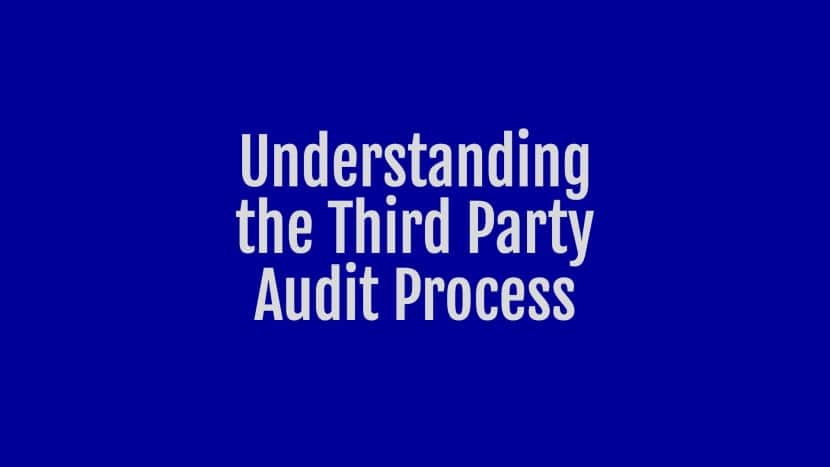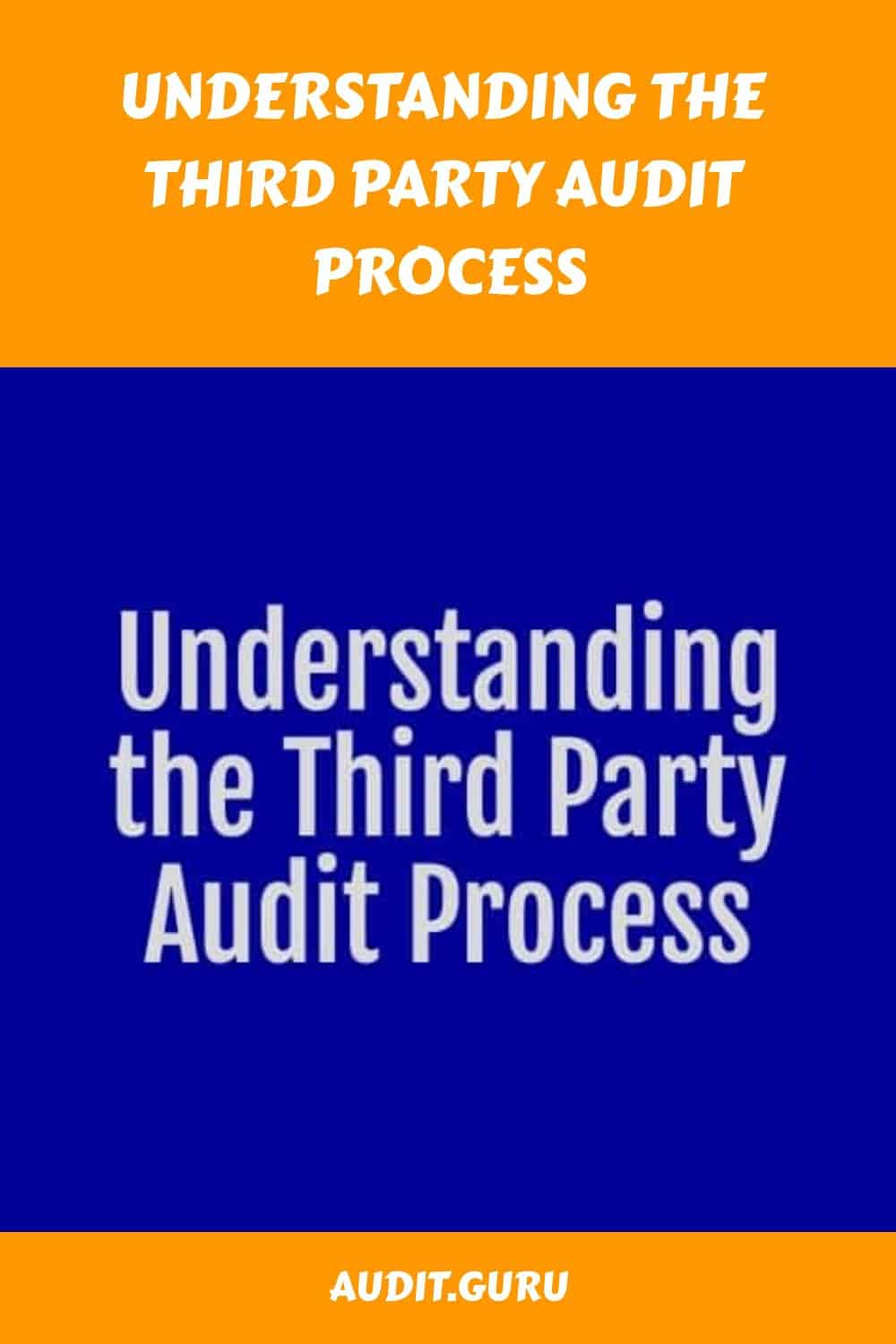Introduction
In today’s complex business landscape, organizations often rely on third-party vendors to provide goods and services. While this can bring numerous benefits, it also introduces potential risks and vulnerabilities. To mitigate these risks and ensure compliance with industry standards, businesses implement a third-party audit process. In this comprehensive guide, we will explore the intricacies of the third-party audit process, its importance, and the benefits it offers.
Definition of Third Party Audit Process
A third-party audit process involves the evaluation and assessment of a company’s vendors or suppliers by an independent party. This independent party, known as the auditor, examines various aspects of the vendor’s operations, including their financial records, quality control processes, and adherence to regulatory requirements. The goal of the audit is to determine the vendor’s reliability, credibility, and ability to meet the organization’s needs.
Importance of Third Party Audits for Businesses
Third-party audits play a crucial role in ensuring the integrity and reliability of a company’s supply chain. By conducting these audits, businesses can gain valuable insights into their vendors’ operations, identify potential risks, and make informed decisions about their partnerships. Additionally, third-party audits help organizations maintain compliance with industry regulations and standards, safeguarding their reputation and minimizing legal and financial risks.
Brief Overview of the Article Content
This comprehensive guide will delve into various aspects of the third-party audit process. We will explore the benefits of conducting third-party audits, provide a vendor audit checklist, discuss best practices for vendor audits, and outline the requirements for third-party audits. By the end of this guide, auditors and IT security professionals will have a clear understanding of the third-party audit process and be equipped with the knowledge to implement it effectively.
Section 1: Understanding the Third Party Audit Process
Before delving into the intricacies of the third-party audit process, it is essential to understand what a third-party audit entails. A third-party audit is an independent assessment conducted by an external party to evaluate the operations, processes, and controls of a vendor or supplier. The purpose of this audit is to provide an unbiased evaluation of the vendor’s performance, reliability, and adherence to industry standards.
The role of auditors in the third-party audit process is crucial. These auditors are typically professionals with expertise in auditing and compliance. They are responsible for conducting the audit, examining the vendor’s operations, and assessing their compliance with relevant regulations and standards. Auditors play a vital role in ensuring the integrity and accuracy of the audit process, providing an unbiased evaluation of the vendor’s performance.
The key objectives of a third-party audit can vary depending on the organization’s specific requirements. However, some common objectives include:
- Assessing the vendor’s financial stability and viability
- Evaluating the vendor’s quality control processes and procedures
- Verifying the vendor’s compliance with industry regulations and standards
- Identifying potential risks and vulnerabilities in the vendor’s operations
- Ensuring the vendor’s ability to meet the organization’s needs and requirements
By achieving these objectives, organizations can make informed decisions about their vendor partnerships, mitigate risks, and maintain a high level of quality and compliance in their supply chain.
Section 2: Benefits of Third Party Audits
Implementing a robust third-party audit process offers numerous benefits for businesses. Let’s explore some of the key advantages:
Enhanced Credibility and Trustworthiness
One of the primary benefits of conducting third-party audits is the enhanced credibility and trustworthiness it brings to a business. By undergoing an independent evaluation, organizations demonstrate their commitment to transparency and accountability. This, in turn, instills confidence in stakeholders, including customers, investors, and regulatory bodies.
According to a survey conducted by Deloitte, 78% of respondents believe that third-party audits enhance the credibility of a company’s financial statements and other disclosures. This statistic highlights the importance of third-party audits in building trust and maintaining a positive reputation in the market.
Identification of Potential Risks and Vulnerabilities
Another significant benefit of third-party audits is the identification of potential risks and vulnerabilities in a vendor’s operations. Auditors thoroughly examine the vendor’s processes, controls, and compliance with regulations, allowing them to identify any weaknesses or areas of concern.
For example, during a vendor audit, auditors may uncover inadequate data security measures, which could pose a significant risk to the organization’s sensitive information. By identifying these vulnerabilities, businesses can take proactive measures to address them, mitigating potential risks and safeguarding their operations.
Compliance with Industry Standards and Regulations
Compliance with industry standards and regulations is a critical aspect of any business operation. Third-party audits play a vital role in ensuring that vendors adhere to these standards and regulations. By conducting regular audits, organizations can verify that their vendors are compliant with relevant laws, regulations, and industry-specific requirements.
For instance, in the healthcare industry, vendors must comply with the Health Insurance Portability and Accountability Act (HIPAA) regulations to protect patient data. Through third-party audits, healthcare organizations can ensure that their vendors meet these stringent requirements, reducing the risk of data breaches and potential legal consequences.
Section 3: Vendor Audit Checklist
Vendor audits are a crucial component of the third-party audit process. These audits help organizations assess the performance, reliability, and compliance of their vendors. Let’s explore the importance of vendor audits, the components of a comprehensive vendor audit checklist, and some key areas to assess during a vendor audit.
Importance of Vendor Audits in the Third Party Audit Process
Vendor audits play a vital role in ensuring the integrity and reliability of a company’s supply chain. By conducting vendor audits, organizations can gain valuable insights into their vendors’ operations, assess their compliance with industry standards, and identify potential risks and vulnerabilities.
According to a survey conducted by PwC, 72% of respondents reported that vendor audits helped them identify risks and vulnerabilities in their supply chain. This statistic highlights the importance of vendor audits in mitigating potential risks and ensuring the overall quality and compliance of the supply chain.
Components of a Comprehensive Vendor Audit Checklist
A comprehensive vendor audit checklist should cover various aspects of a vendor’s operations, ensuring a thorough evaluation. Some key components to include in a vendor audit checklist are:
| Component | Description |
|---|---|
| Financial Stability | Evaluate the vendor’s financial health, including their financial statements, creditworthiness, and payment history. |
| Quality Control Processes | Assess the vendor’s quality control procedures, including their adherence to quality standards, product testing, and defect management. |
| Compliance with Regulations | Verify the vendor’s compliance with relevant regulations and industry-specific requirements, such as data protection laws or environmental regulations. |
| Contractual Obligations | Review the vendor’s contractual agreements, ensuring they meet the organization’s requirements and obligations. |
| Security Measures | Assess the vendor’s data security measures, including their cybersecurity protocols, access controls, and data encryption. |
A comprehensive vendor audit checklist should be tailored to the organization’s specific needs and industry requirements. It should cover all critical areas to ensure a thorough evaluation of the vendor’s operations.
Examples of Key Areas to Assess During a Vendor Audit
During a vendor audit, auditors should focus on assessing various key areas to gain a comprehensive understanding of the vendor’s operations. Some examples of key areas to assess during a vendor audit include:
- Vendor’s financial stability and viability
- Quality control processes and procedures
- Compliance with industry regulations and standards
- Data security measures and protocols
- Supplier performance and relationship management
By evaluating these key areas, organizations can ensure that their vendors meet the necessary requirements and contribute to the overall success and compliance of the business.









